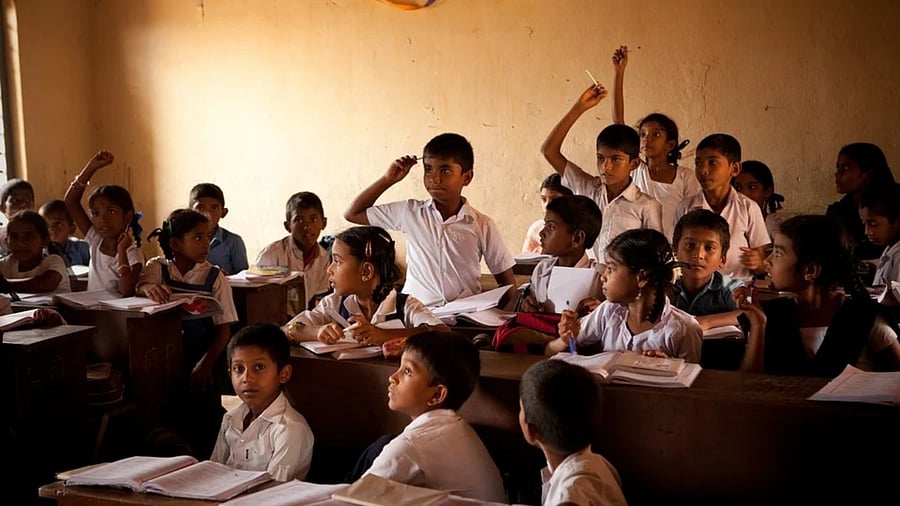
What are the barriers to the inclusion of transgender and gender non-conforming children in school education? How can teachers step in to provide a supportive environment? What are some concrete ways of adapting curriculum, pedagogy and infrastructure to these children's needs? India's National Council of Educational Research and Training (NCERT) seems to have thought deeply about these questions, which are often overlooked in education policy.
This conclusion can be drawn by anyone who has read the NCERT's new teacher training material titled, "Inclusion of Transgender Children in School Education: Concerns and Roadmap". This document makes a sincere effort to lay out a path for inclusion. It also equips teachers with a historical understanding of the discrimination faced by transgender and gender non-conforming children in India. Unfortunately, the NCERT has withdrawn it.
It was available for free download until a week ago. Social media outrage and a letter of complaint from the National Commission for Protection of Child Rights (NCPCR) have made the NCERT doubt its wisdom. When the transgender experts who served as external members of the project team faced vicious personal attacks on social media, the NCERT did not defend them, and neither did it stand up for its staff. Two professors from the NCERT's Department of Gender Studies have been transferred to other departments.
On November 11, The Indian Express reported that Prof. Poonam Agrawal and Prof. Mona Yadav, who developed the teacher training material, have been transferred to the Department of Education of Groups with Special Needs and the Central Institute of Educational Technology, respectively. This change is also reflected on the NCERT's website. They have been punished for being allies to transgender and gender non-conforming people based on objections made by people with no training in curriculum development or gender studies.
Did the NCERT assume that its teacher training material would be welcomed with open arms, given the extent of prejudice towards transgender and gender non-conforming people in India? Why did it not respond to the criticism with a public statement, clarifying its vision and putting to rest the doubts and misgivings? The NCERT missed a golden chance to show teachers all over India how to deal with the backlash that they might face from parents, school administrators, and other stakeholders in their efforts towards ensuring inclusion.
The teacher training material that the NCERT has withdrawn could have made substantial contributions to improving the lives of India's transgender and gender non-conforming people. It was trying to build on what has already been articulated in the National Legal Services Authority Judgement (2014), the National Youth Policy (2014), the Transgender Persons Protection of Rights Act (2019), and the National Education Policy (2020). Legal judgements, laws and policies become meaningful only when they are implemented.
The issue of gender-responsive infrastructure needs to be taken seriously because children's learning is affected by the absence of amenities. The NCERT's teacher training material does not call for an end to separate toilets for boys and girls. It suggests that some toilets in schools be designated gender-neutral so that these can be used by transgender and gender non-conforming children who experience dysphoria. By acting on this, schools will be able to provide a sense of safety to children who face bullying and abuse while using toilets.
Since these children are often shunned by their own families, schools have an additional responsibility to care for their well-being. The NCERT's teacher training material includes stories of several individuals who had suffered terrible indignities. One of these stories features Grace Banu, a transgender engineer and entrepreneur from Tamil Nadu. Disowned by her family, she continued to attend school because she was determined to study. She started living with fellow trans women.
It is true that India's colonisers criminalised transgender and gender non-conforming people, but we cannot continue to fall back on that explanation to justify the present situation. We have to live in the present, take stock of what needs to be done, and move forward. The NCERT can choose to review its hasty decision, make the teacher training material available again, celebrate the efforts of the people who developed it and create a team of educators and community activists who can help disseminate this material all over India.
The NCERT is fortunate to have the backing of the Association for Transgender Health in India (ATHI). A statement of solidarity by Sanjay Sharma, CEO and Managing Director of ATHI, states that the association "applauds NCERT for being the beacon of societal change by reminding us that the onus of protecting the rights of the child experiencing gender incongruence rests on the primary care providers, which apart from parents and guardians, includes teachers, who become the bridge between the home and society."
Will the NCERT listen to the appeals of over 9000 people who have signed a Change.org petition asking it to bring back its teacher training manual for the inclusion of transgender and gender non-conforming children? Only time will tell. It is rare for an autonomous organisation of the government of India to get such overwhelming adulation from parents, teachers and activists, and it must rise to the occasion.
(Chintan Girish Modi is a freelance writer, journalist and book reviewer)
Disclaimer: The views expressed above are the author's own. They do not necessarily reflect the views of DH.
Watch the latest DH Videos here: